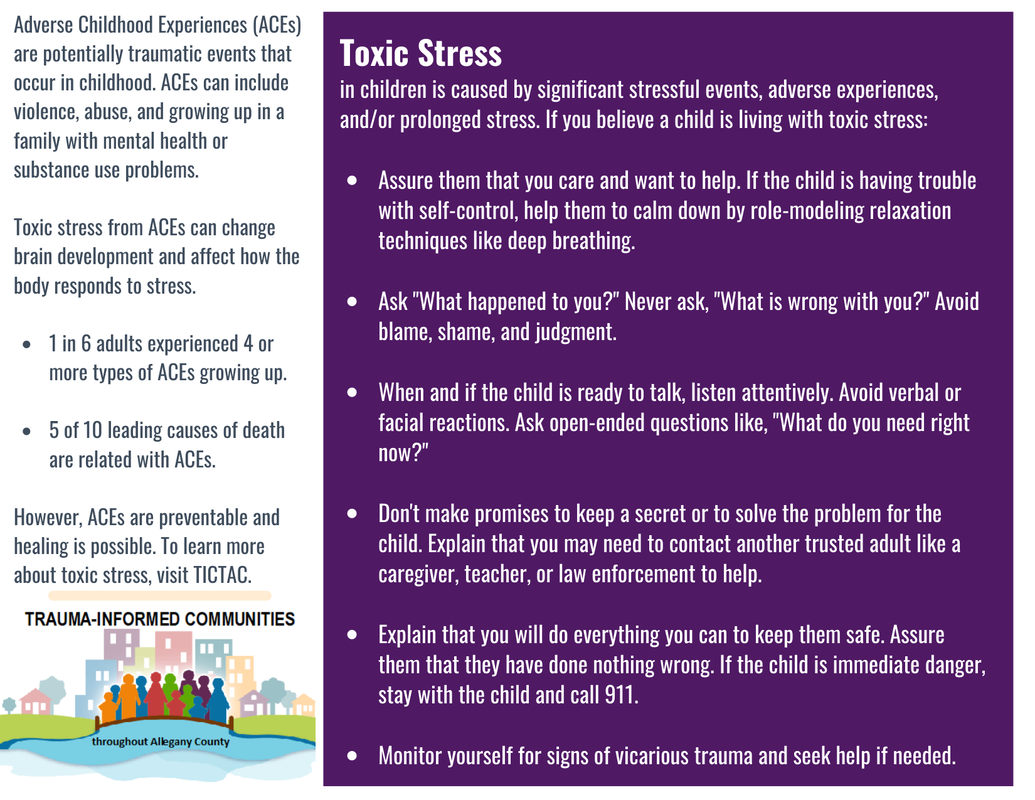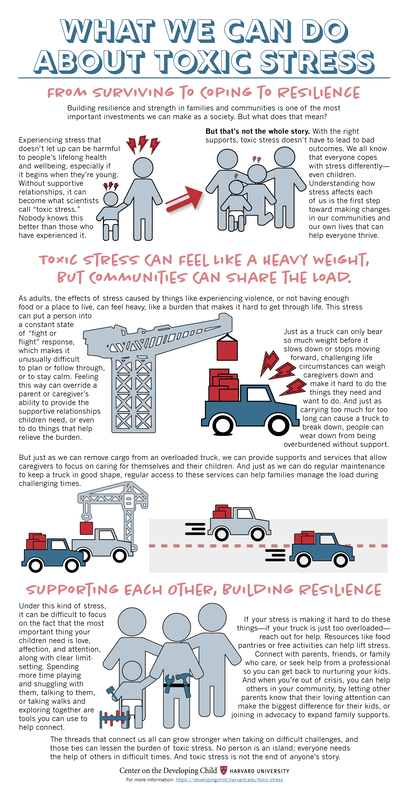- Home
- Trauma-Informed Education
- Trauma Overview
-
#onecaringadult
- #Onecaringadult Allegany County App
- #onecaringadult- Academic Stress
- #onecaringadult- Alcohol and Other Drugs
- #onecaringadult- Bullying
- #onecaringadult- LGBTQ+
- #onecaringadult- Childhood Neglect
- #onecaringadult- E-Cigarettes and Vaping
- #onecaringadult- Eating Disorders
- #onecaringadult- Mental Health
- #onecaringadult- Online Sexual Exploitation
- #onecaringadult- Non-Suicidal Self-Injury
- #onecaringadult- Sexual Abuse
- #onecaringadult- Sexually Transmitted Infections
- #onecaringadult- Suicide Prevention
- #onecaringadult- Teen Dating Violence
- #onecaringadult- Teen Pregnancy
- #onecaringadult- Toxic Stress
- #onecaringadult- Vaping & E-Cigarettes
- #onecaringfriend
- Trauma-Informed Resources
Vicki Grant, Retired Commissioner of the Allegany County Department of Social Services and TICTAC Founder
Exposure to stressful and adverse experiences over a long period of time can become toxic. This repeated exposure to stress without the benefit of buffering protection of a supportive, adult relationship has been termed toxic stress. Several adverse life events that may contribute to toxic stress response include neglect and abuse, divorce/separation, death of a loved one, exposure to domestic violence, incarceration of a parent or a family member, neighborhood violence, extreme poverty, parent or family member abusing drugs/alcohol, parent or caregiver having a mental illness, neglect. Exposure to toxic stress can have detrimental short and long-term physical and mental health consequences on both children and adults. By being a child's #onecaringadult, you have the ability to protect the child from ongoing toxic stress and help that child heal.
WHAT YOU NEED TO KNOW ABOUT TOXIC STRESS
|
Recognizing Toxic Stress
The signs of traumatic stress are different in each child. Young children react differently than older children. For some children, these reactions can interfere with daily life and their ability to function and interact with others.
Preschool children
Elemntary-Age children
Middle and High School Children
How Can You Help?
Click on the Infographic to download the PDF and Print
|
Learn More About Toxic Stress
HELPFUL LINKS
|
- Home
- Trauma-Informed Education
- Trauma Overview
-
#onecaringadult
- #Onecaringadult Allegany County App
- #onecaringadult- Academic Stress
- #onecaringadult- Alcohol and Other Drugs
- #onecaringadult- Bullying
- #onecaringadult- LGBTQ+
- #onecaringadult- Childhood Neglect
- #onecaringadult- E-Cigarettes and Vaping
- #onecaringadult- Eating Disorders
- #onecaringadult- Mental Health
- #onecaringadult- Online Sexual Exploitation
- #onecaringadult- Non-Suicidal Self-Injury
- #onecaringadult- Sexual Abuse
- #onecaringadult- Sexually Transmitted Infections
- #onecaringadult- Suicide Prevention
- #onecaringadult- Teen Dating Violence
- #onecaringadult- Teen Pregnancy
- #onecaringadult- Toxic Stress
- #onecaringadult- Vaping & E-Cigarettes
- #onecaringfriend
- Trauma-Informed Resources

